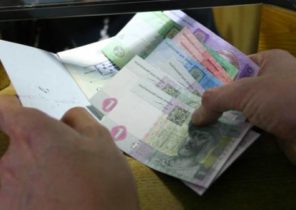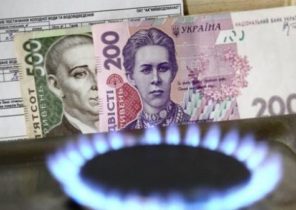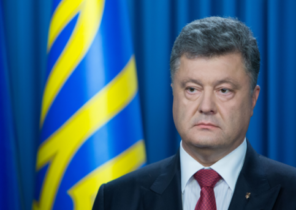
This year’s world economic forum in Davos took place in a moment of confusion in the environment of global economic and financial elites. The global economy in recent years is in quite good condition, but the voters rebelled against these elites.
Despite problems and weaknesses, about which much has been said in recent years there have been plenty of good economic news. Because of globalization and technical progress, since 2009 the average growth rate of global GDP in terms of per capita hold at 2.5% per year. This is less than before the great recession, but, nevertheless, very high by historical standards. Percentage of world population living below the poverty line, over the last 35 years declined from 40% to just 10%.
Perhaps the most poignant cause of discontent last year was inequality. However, at the global level, inequality decreases. Although in some developed countries, inequalities are increasing, this growth was not particularly sharp, the pace remains modest.
However, this is not the picture, which sees the average citizen. In the new “transition Report” prepared by the European Bank for reconstruction and development (where I work as chief economist) on the basis of a joint survey by the world Bank and the EBRD “Life in transition” (2015-2016), it is emphasized that perceived rise in inequality is much greater than the reality, which is drawn by official statistics (compiled on the basis of household surveys).
34 in all countries (except one), where were the households interviewed, the majority of respondents reported that the level of inequality over the last few years has grown. Meanwhile, the official statistics show very little change in the Gini coefficient (indicator of inequality) during this period, many countries recorded a decrease in inequality.
One would assume that the collision data to the perceptions data will always win. But in our case, data may be incorrect, or, more precisely, we may use incorrect statistics. Unlike ordinary citizens who see homeless people on the streets and billionaires in the news, and surveys of households, which are based on official estimates of inequality may not adequately cover those at the very top and very bottom of the pyramid of income distribution.
Another form of data collected by the French economist Thomas Piketty, may give a more accurate picture of today’s inequality. This tax data, which show that the rate of growth of incomes of the super-rich in recent years began to significantly surpass the growth rate of income of the population. Philip Aghion, fellow at Harvard University and the Collège de France, along with a group of sponsors supported this observation, showing that within the General population of the rich countries (99%) the level of inequality has not changed, but the top 1% dramatically broke away from everyone else.
The concentration of wealth at the top, as emphasized by Pickett and others, can be dangerous. If political institutions are weak, then the rich tycoons can use their money for the “privatization” of officials and changes in the economic regulation in their favor. Thanks to the newly emerging competitive advantages, they can earn excessive profit, reinvesting a portion of the catch in the capture of new unjust or rental income. The concentration of wealth becomes increasingly difficult to limit, and eventually the smaller entrepreneurs squeezed out of the market.
Of course, if political institutions are strong enough, even the super-rich can’t distort the rules of the game. In this case, the people with the most wealth are the most talented and successful entrepreneurs reap the rewards for the promotion of innovation and economic growth that benefit the entire economy.
Unfortunately, in many of the 36 member countries of the EBRD’s political institutions are not strong enough. This is evidenced by the fact that the bulk of the wealth of billionaires in the countries of EBRD tied to raw materials and natural resources. From this we can conclude not only that they are available resource rent, but that rent is not adequately taxed.
There is an obvious need to limit unfair political influence of the super-rich. Specifically, this means increasing transparency of political financing, the introduction of stricter and more effective regulation. However, it is also necessary to address the issue of the use of the media oligarchs to manipulate policy in their own interests.
In 2012, Luigi was Singlestream that oligarchs may use their own media to strengthen their political positions, which further help them to derive rental income, through which they Finance the media. Former Italian Prime Minister Silvio Berlusconi, according to Zingales, was in this sense a consummate master. However, many of the oligarchs in post-Communist countries are doing the same.
The oligarchs can prove that it is better to own the media, than the state: at least they can compete with other oligarchs. However, this is a false argument. Yeah, when the media are owned by kleptocratic or authoritarian governments, it’s dangerous. But equally dangerous is the situation when the media is owned by oligarchs, who are able to conspire among themselves to protect their collective interests. These interests may dramatically differ from the interests of the rest of society.
Media is one of the foundations of modern democratic society. That’s why media owners should be transparent, and ideally their owners should be prohibited from owning other assets. In other words, the media should be subject to antitrust regulation, similar to that used in the infrastructure sector.
Of course, this competition policy will encounter fierce political resistance. But even if this measure is implemented in practice, the oligarchs will continue to influence the media through, for example, advertising contracts at inflated prices. To some extent, even part of the media can bow down to these oligarchic subsidies, trying to cope with the new challenges that have emerged from the traditional business models in the media.
To solve these problems requires, first and foremost, a strong independent regulator. In addition, transparent and depolitisation public subsidies would support the social good that an honest news media.
To implement effective anti-monopoly regulation in the media sector will not be easy. However, it’s easier than dealing with an increasingly dissatisfied society, losing faith in democracy and open markets.







